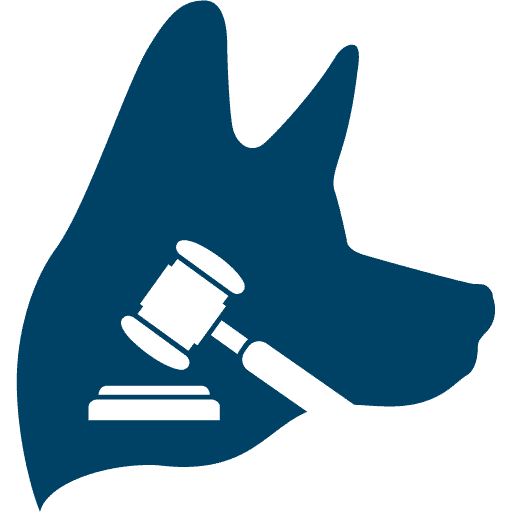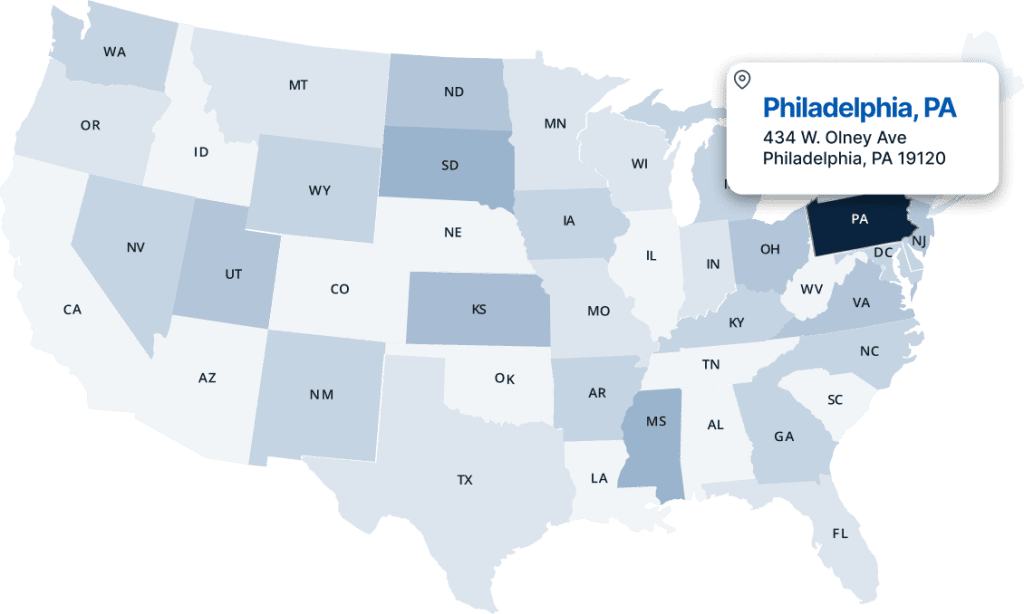Home » Nursing Home Abuse Lawyer » Nursing Home Neglect Lawyer » Lawyers for Bedsores » New Jersey Nursing Home Bedsore Lawyer
Placing a loved one in a nursing home is a decision no family takes lightly. It comes with hope: the hope that caregivers will provide safety, respect, and dignity to someone who once did the same for us.
But when a resident develops bedsores—a preventable injury often rooted in neglect—that trust is shattered. If you’re reading this, you might be in the middle of that heart-wrenching discovery.
A New Jersey Nursing Home Bedsore Lawyer at TopDog Law, we help families across New Jersey hold negligent nursing homes accountable. Bedsores (also known as pressure ulcers) are more than painful wounds. They’re red flags. And they may be the first visible sign that your loved one isn’t receiving the care they deserve.



A bedsore begins when constant pressure cuts off blood flow to the skin. It often forms where bones meet skin, especially around the heels, hips, tailbone, and elbows. Bedsores quickly worsen when left unchecked, sometimes even exposing muscle or bone.
But while the biology may be complex, the cause in many nursing home cases is not: neglect.
Residents who are immobile or rely on staff to reposition them are especially vulnerable. If the staff isn’t turning patients regularly, maintaining clean bedding, or monitoring their skin condition, the risk rises. In short, bedsores happen when care protocols are skipped, corners are cut, and vulnerable individuals are ignored.
While a single bedsore doesn’t automatically mean the nursing home is negligent, it’s usually part of a larger pattern. When facilities are understaffed or poorly managed, residents may be left unattended for hours. They might miss meals, go unbathed, or lie in soiled bedding. That’s not just poor care. It’s dangerous to the patient’s health.
According to the National Pressure Injury Advisory Panel, pressure injuries are a serious concern in long-term care. But with proper oversight, most of these injuries can be prevented. So when they occur, they’re usually a symptom of a deeper problem: nursing home mismanagement, inattentive staff, or a system prioritizing profit or convenience over patient dignity.
New Jersey law provides strong protections for nursing home residents. Under the Nursing Home Residents’ Bill of Rights, every resident has the right to a clean and safe environment, freedom from abuse or neglect, and access to necessary medical treatment. Facilities that violate these rights can be held liable in a civil court of law.
If your loved one developed bedsores due to neglect, you may have grounds to pursue legal action. Bedsore cases aren’t just about pursuing compensation; they’re about holding institutions accountable and pushing for better standards across the industry.

When families come to us, they often feel helpless, frustrated, and overwhelmed. They’ve filed complaints, talked to administrators, and often even moved their loved one to another facility. But the harm—physical, emotional, and financial—is already done.
Taking legal action can help your loved one secure the care they deserve. A nursing home abuse lawyer can:
Many families worry they won’t be believed or that the case will be too hard to prove. But documentation, photos, medical records, and patterns of past complaints can speak volumes.
Suing a nursing home in New Jersey involves several steps:
In New Jersey, the statute of limitations for most personal injury cases, including nursing home neglect, is two years. However, some exceptions could affect your case, so it’s best not to delay.
If you’re planning to move your loved one to another nursing home, there are a few things to keep in mind while researching care homes in New Jersey:
Trust your gut. If something feels off, speak up. If you’re stonewalled or dismissed, that’s a red flag.


Families have a legal right to access medical records of their loved ones in care facilities. If the home refuses, an attorney can issue a formal request or subpoena to compel the release of documents.
Retaliation is prohibited under federal and New Jersey law. Facilities that retaliate may face additional legal consequences, including enhanced damages and penalties.
Yes. The New Jersey Department of Health licenses and inspects long-term care facilities. The Long-Term Care Ombudsman also investigates complaints of abuse or neglect.
Yes. Compensation may cover medical costs, pain and suffering, emotional distress, and in some cases, punitive damages meant to punish especially negligent, reckless, or malicious misconduct.
You may be able to file a wrongful death lawsuit. This process involves specific legal standards and time limits, so speaking with an attorney promptly is important.
If your loved one has developed a bedsore and you’re concerned that neglect may be to blame, it’s time to speak with a nursing home neglect attorney.
Stand up for your loved one and help them receive the care they truly deserve. Call TopDog Law today at (973) 620-2720 or contact us through our online form. We will connect you with a qualified New Jersey personal injury lawyer near you for a free consultation.

600 Mount Prospect Avenue,
Suite A
Newark, NJ 07104
TopDog Law is known for its relentless pursuit of justice. Our experienced team fights tirelessly to secure maximum compensation for our clients, ensuring every case is handled with dedication and determination.
We understand the emotional and financial toll that personal injuries can take. That’s why we prioritize open, compassionate communication and provide tailored support throughout the legal process. With free consultations and a contingency fee model, you won’t pay a dime unless we win your case.
With TopDog Law on your side, you can rest assured that you have a tenacious, experienced team fighting to get you the compensation you deserve, no matter where you’re located.

TopDog Law is a national marketing network for law firms, including Helm Law Group, LLC, which license the TopDog Law name and separately operate in states where they are each licensed. James Helm is licensed to practice in Arizona and Pennsylvania. Helm Law Group, LLC operates in Arizona.
3225 Cumberland Blvd, Ste 100
Atlanta, GA 30339
111 Presidential Blvd., Suite 251
Bala Cynwyd, PA 19004
1 South St, Suite 2125A
Baltimore, MD 21202
950 22nd Street N. Suite 600
Birmingham, AL 35203
361 Newbury Street, 3rd Floor
Suite 310
Boston, MA 02115
305 E 204th St.
Bronx, NY 10467
215 E 5th St, Unit 1 Suite 400-3
Brooklyn, NY 11218
1207 Delaware Ave, Suite 012
Buffalo, NY 14209
101 N Tryon St. Suite C
Charlotte, NC 28246
6343 S Western Ave.
Chicago, IL 60636
2217 E 9th St, Suite A
Cleveland, OH 44115
66 S Logan St Suite B
Denver, CO 80209
645 Griswold Street, Suite 1309
Detroit, MI 48226
863 Massachusetts Ave 2nd floor Suite B
Indianapolis, IN 46204
317 E Capitol St suite 200C
Jackson, MS 39201
1701 Troost Ave suite 202b
Kansas City, MO 64108
#8 Shackleford Plaza, Suite 304
Little Rock, AR 72211
8124 W 3rd St, Suite 201
Los Angeles, CA 90048
3385 Airways Blvd Unit 301F
Memphis, TN 38116
1433 N Water St Suite 400D
Milwaukee, WI 53202
600 Mount Prospect Avenue, Suite A
Newark, NJ 17104
66 Franklin St, Suite 300C
Oakland, CA 94607
5627 Germantown Ave Suite 420
Philadelphia, PA 19144
2700 N Central Ave Suite 320B
Phoenix, AZ 85004
6425 Living Place, Suite 200
Pttsburgh, PA 15206
920 West Sproul Road, Suite 201
Springfield, PA 19064
4625 Lindell Blvd Suite 200 & 300C
St. Louis, MO 63108
1150 Connecticut Ave NW, Suite 802B
Washington, DC 20036
6832 W North Ave Suite 2A
Chicago, IL 60707
3509 Haverford Ave, Suite 102
Philadelphia, PA 19104
Copyright 2025 All Rights Reserved © TopDog Technologies, Inc. and Helm Law Group, LLC
403 Olde House Lane Media, PA 19063
